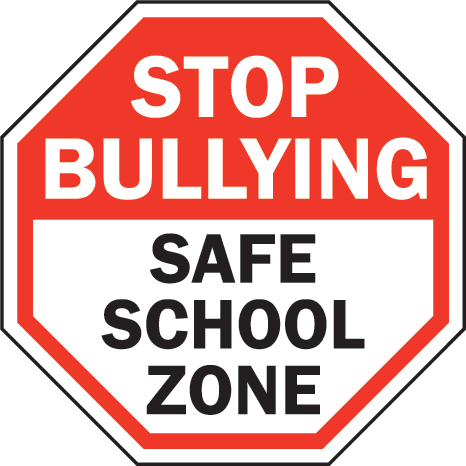Bullying Prevention and Awareness
District 215 is committed to providing a safe learning environment for all students. Bullying will not be tolerated.
If your matter is an emergency in nature, call 911 immediately.
Reporting Bullying Incidents
Reports of bullying, harassment, school violence, or other activities regarding student safety can be reported anonymously using the See Something Say Something Form below. Reports will be addressed on the next business day.
District 215 See Something Say Something Form
Alternately, reports may be made directly to District 215 staff using the contact information below.
TF North
Assistant Principal of Building Control
(708) 585-1004 E-Mail
TF South
Assistant Principal of Building Control
(708) 585-2039 E-Mail
TF Center for Academics and Technology & TF Center for Alternative Learning
Assistant Principal of Building Control
(708) 585-2393 E-Mail
Bullying Defined

Bullying, intimidation, and harassment diminish a student’s ability to learn and a school’s ability to educate. Preventing students from engaging in these disruptive behaviors and providing all students equal access to a safe, non-hostile learning environment are important District goals.
Bullying on the basis of actual or perceived race, color, national origin, military status, unfavorable discharge status from the military service, sex, sexual orientation, gender identity, gender-related identity or expression, ancestry, age, religion, physical or mental disability, order of protection status, status of being homeless, or actual or potential marital or parental status, including pregnancy, association with a person or group with one or more of the aforementioned actual or perceived characteristics, or any other distinguishing characteristic is prohibited in each of the following situations:
1. During any school-sponsored education program or activity.
2. While in school, on school property, on school buses or other school vehicles, at designated school bus stops waiting for the school bus, or at school-sponsored or school-sanctioned events or activities.
3. Through the transmission of information from a school computer, a school computer network, or other similar electronic school equipment.
4. Through the transmission of information from a computer that is accessed at a non-school related location, activity, function, or program or from the use of technology or an electronic device that is not owned, leased, or used by the School District or school if the bullying causes a substantial disruption to the educational process or orderly operation of a school. This paragraph applies only when a school administrator or teacher receives a report that bullying through this means has occurred; it does not require staff members to monitor any non-school related activity, function, or program.
Bullying includes cyber-bullying and means any severe or pervasive physical or verbal act or conduct, including communications made in writing or electronically, directed toward a student or students that has or can be reasonably predicted to have the effect of one or more of the following:
Placing the student or students in reasonable fear of harm to the student’s or students’ person or property;
Causing a substantially detrimental effect on the student’s or students’ physical or mental health;
Substantially interfering with the student’s or students’ academic performance; or
Substantially interfering with the student’s or students’ ability to participate in or benefit from the services, activities, or privileges provided by a school.
Bullying, as defined in 105ILCS 5/27-23.7, may take various forms, including without limitation one or more of the following: harassment, threats, intimidation, stalking, physical violence, sexual harassment, sexual violence, theft, public humiliation, destruction of property, or retaliation for asserting or alleging an act of bullying. This list is meant to be illustrative and non-exhaustive.
Cyber-bullying, as defined in 105ILCS 5/27-23.7 means bullying through the use of technology or any electronic communication, including without limitation any transfer of signs, signals, writing, images, sounds, data, or intelligence of any nature transmitted in whole or in part by a wire, radio, electromagnetic system, photo-electronic system, or photo-optical system, including without limitation electronic mail, Internet communications, instant messages, or facsimile communications. Cyber-bullying includes the creation of a webpage or weblog in which the creator assumes the identity of another person or the knowing impersonation of another person as the author of posted content or messages if the creation or impersonation creates any of the effects enumerated in the definition of bullying.
Cyber-bullying also includes the distribution by electronic means of a communication to more than one person or the posting of material on an electronic medium that may be accessed by one or more persons if the distribution or posting creates any of the effects enumerated in the definition of bullying.
Click here to see the full anti-bullying policy of District 215.

